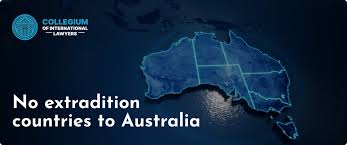
Exploring Immigration Options for Couples: A Comprehensive Guide
For couples considering relocating to another country, navigating the complexities of immigration can be a daunting task. There are various pathways available, each with its own requirements and processes. This article will outline the most common immigration options for couples, highlighting the key factors to consider in each case.
1. Spousal Visas
One of the most common routes for couples is through spousal visas. These permits allow a foreign national to join their spouse in their country, typically within a short time frame. The requirements usually include proof of marriage, financial stability, and sometimes an interview process. Countries like the United States, Canada, and many EU nations have specific spousal visa programs designed for this purpose.
United States
In the U.S., the process often begins with filing a Form I-130, Petition for Alien Relative. If approved, the spouse can apply for a visa to enter the U.S. The entire process can take several months, depending on various factors such as the applicant’s country of origin and current immigration policies.
Canada
Canada offers an expedited process for spousal sponsorship. Couples must submit an application together, proving their relationship and intention to reside in Canada. Processing times can vary, but Canada is generally regarded as having a welcoming immigration policy that prioritizes family reunification.
2. Fiancé(e) Visas
For couples who are not yet married but wish to be together in a new country, a fiancé(e) visa may be an option. This type of visa allows the foreign fiancé(e) to enter the country with the intent to marry within a certain timeframe. The requirements differ from country to country, but applicants will typically need to demonstrate the legitimacy of their relationship.
United States
The U.S. offers the K-1 visa specifically for this purpose. The U.S. citizen must apply on behalf of their fiancé(e), and once the visa is granted, the couple must marry within 90 days of entry. After marriage, the foreign spouse can apply for permanent residency.
United Kingdom
In the U.K., the fiancé(e) visa requires couples to prove that they intend to marry within six months of entering the country. The applicant must meet certain financial requirements, and a formal application with supporting documents is needed to ensure a successful outcome.
3. Partner Visas

For couples who are in a long-term relationship but not legally married, partner visas may provide a viable option. These visas cater to de facto relationships and often have less stringent requirements compared to spousal visas.
Australia
Australia offers a Partner Visa pathway for couples in genuine relationships, either married or de facto. To be eligible, couples must demonstrate their commitment through joint financial responsibilities, shared living arrangements, and social recognition of their relationship.
New Zealand
Similar to Australia, New Zealand has a Partner of a New Zealand Citizen Residence Visa. Applicants must provide evidence of their relationship and fulfill health and character requirements. This pathway is relatively straightforward for couples looking to settle in New Zealand.
4. Resident Permits for Couples
Many countries have specific resident permits designed for couples. These permits often allow couples to live and work in the host country while they await permanent residency or citizenship.
Germany
In Germany, non-EU spouses can apply for a residence permit based on their marriage to a German citizen or legal resident. The application process includes language proficiency requirements and proof of financial stability.
Sweden
Sweden has a relatively straightforward process. If you are married to a Swedish citizen or have lived together with them for a certain period, you can apply for a residence permit, which may lead to permanent residency after a few years.
5. Other Considerations
While navigating immigration laws, couples should also consider the following factors:
- Legal Advice: Consulting an immigration lawyer can help clarify complex situations and guide couples through paperwork.
- Financial Stipulations: Many countries require proof of financial stability, which can include income statements or job offers.
- Length of Relationship: Some immigration processes consider how long the couple has been together, which can impact their eligibility.
- Cultural Differences: Understanding cultural and legal differences can aid in building a stronger relationship and smoothen the immigration process.
Conclusion
Immigration options for couples vary significantly by country, but understanding the various pathways can empower couples to make informed decisions about their future. Whether utilizing spousal visas, fiancé(e) visas, partner visas, or other options, the journey can be both exciting and challenging. Through thorough research and appropriate legal guidance, couples can successfully navigate the immigration landscape together, paving the way for a brighter future.

